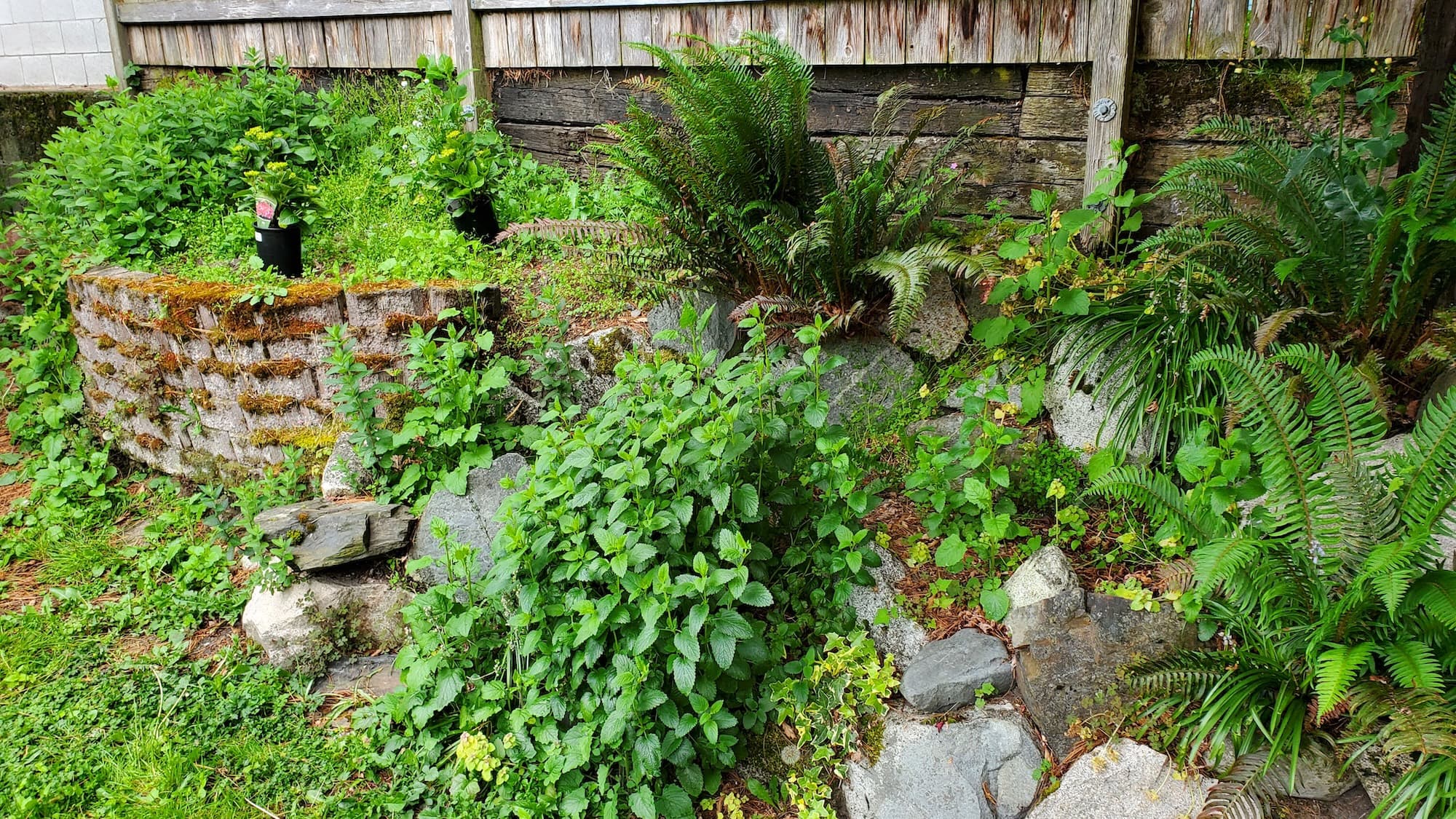West Seattle Thistle Removal
Homeowner’s Issue
Thistles in West Seattle are a recurring problem on compacted lawns, new beds, and disturbed slopes. Our neighborhood soils trend toward compacted loam with pockets of clay—especially in lower-elevation lots near Lincoln Park—and those hold moisture through the long wet season. Winters (Oct–Apr) are wet and cool, which produces a heavy spring weed flush; summers can be dry on exposed slopes around Alki and Admiral, stressing lawns and giving opportunistic weeds a foothold.
Many properties here are shaded by large maples and Douglas-fir, encouraging moss and patchy turf that thistles exploit. Sloped yards in Fauntleroy and the Junction often have drainage and erosion issues that make mechanical control harder and seed persistence longer. HOA and curb-appeal concerns push homeowners to want clean, low-maintenance solutions, but city water-use guidance and seasonal watering limits mean any fix has to conserve moisture long-term. Sustainable, non-chemical removal plus soil rebuilding and competitive plantings are the only reliable way to stop thistles coming back without increasing irrigation or ongoing labor.
Our Quality Service
We remove thistles by hand and mechanical root extraction—no herbicides. Our crew uses digging bars, root saws, tarps, and brushes to ensure crowns and root fragments are pulled rather than snapped. For larger infestations we stage work: initial removal, a 6–12 week follow-up to catch resprouts, then mulching and reseeding with low-water, competitive mixes or native groundcovers.
Typical timelines: small patches (1–3 hours), medium yards (half to full day), large or sloped sites phased over multiple visits. We follow Seattle green-waste practices, offer haul-away, and advise on soil amendments, aeration, and mulch depths to reduce future weed pressure. Benefits: safer yards for kids and pets, improved curb appeal, lower maintenance season-to-season, and durable results that respect West Seattle’s microclimates.
What’s Included
- Property assessment and infestation mapping.
- Manual root-and-crown removal (hand-pulling, digging, root sawing).
- Site clean-up and green-waste sorting.
- Mulch application or fabric where appropriate.
- Follow-up visit(s) to remove resprouts (scheduled as needed).
Options / Upgrades:
- Mulch + landscape fabric for high-traffic beds.
- Solarization (clear plastic) for heavily infested sunny patches.
- Reseeding with low-water turf mixes or native groundcovers.
- Compost topdress and light aeration to improve soil structure.
- Haul-away of debris vs. bagging for City green bin collection.
Before & After / Expectations
Expect some digging noise and disturbed soil immediately after removal; we tidy beds and pathways but you should plan on minor cosmetic touch-ups (topdressing, seed) after our work. On slopes we may stage erosion control measures and return for follow-up checks. Thistles set persistent root systems—most customers see the first regrowth checks within 4–12 weeks and require 1–3 follow-up visits the first year.
Care tips for West Seattle:
- Best removal window is early spring or late summer before seed set.
- Mulch 2–3” in beds to suppress seedlings; keep mulch pulled off trunks and crowns.
- Water deeply but infrequently in summer (early morning) to favor established plants over shallow-rooted weeds.
- Reduce shade-related moss by increasing light, improving drainage, and amending soil pH where needed.
FAQs
Q: Will you use herbicide?
A: No. We use only manual, mechanical, and organic methods—no herbicides.
Q: How soon will thistles stop returning?
A: You’ll see reduction after the first season; expect 1–3 follow-ups the first year for durable control.
Q: Do you haul the waste?
A: Yes—haul-away or bagging for Seattle green-waste is available and priced on the estimate.
Q: Do you need driveway or gate access?
A: Yes. Clear access helps us complete work faster and reduces site disturbance.
Call to Action
If you live in West Seattle and want thistles removed properly and sustainably, book a free estimate. We schedule fast, explain the realistic timeline, and tailor fixes for Alki, Lincoln Park, Admiral, and nearby pockets. Email neatandtidyseattle@gmail.com or call 206-538-9344 to get on the calendar.










